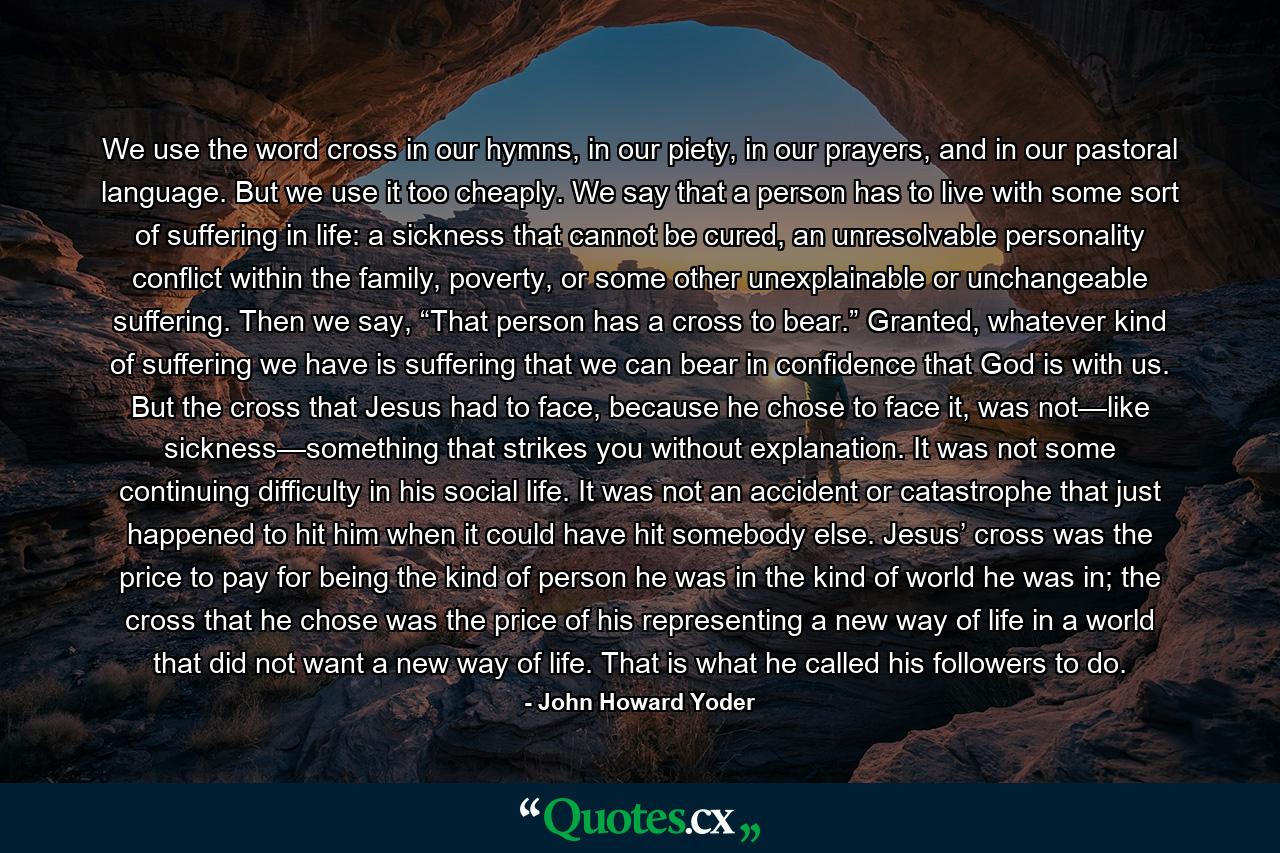We use the word cross in our hymns, in our piety, in our prayers, and in our pastoral language. But we use it too cheaply. We say that a person has to live with some sort of suffering in life: a sickness that cannot be cured, an unresolvable personality conflict within the family, poverty, or some other unexplainable or unchangeable suffering. Then we say, “That person has a cross to bear.” Granted, whatever kind of suffering we have is suffering that we can bear in confidence that God is with us. But the cross that Jesus had to face, because he chose to face it, was not—like sickness—something that strikes you without explanation. It was not some continuing difficulty in his social life. It was not an accident or catastrophe that just happened to hit him when it could have hit somebody else. Jesus’ cross was the price to pay for being the kind of person he was in the kind of world he was in; the cross that he chose was the price of his representing a new way of life in a world that did not want a new way of life. That is what he called his followers to do.
